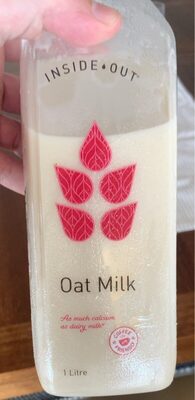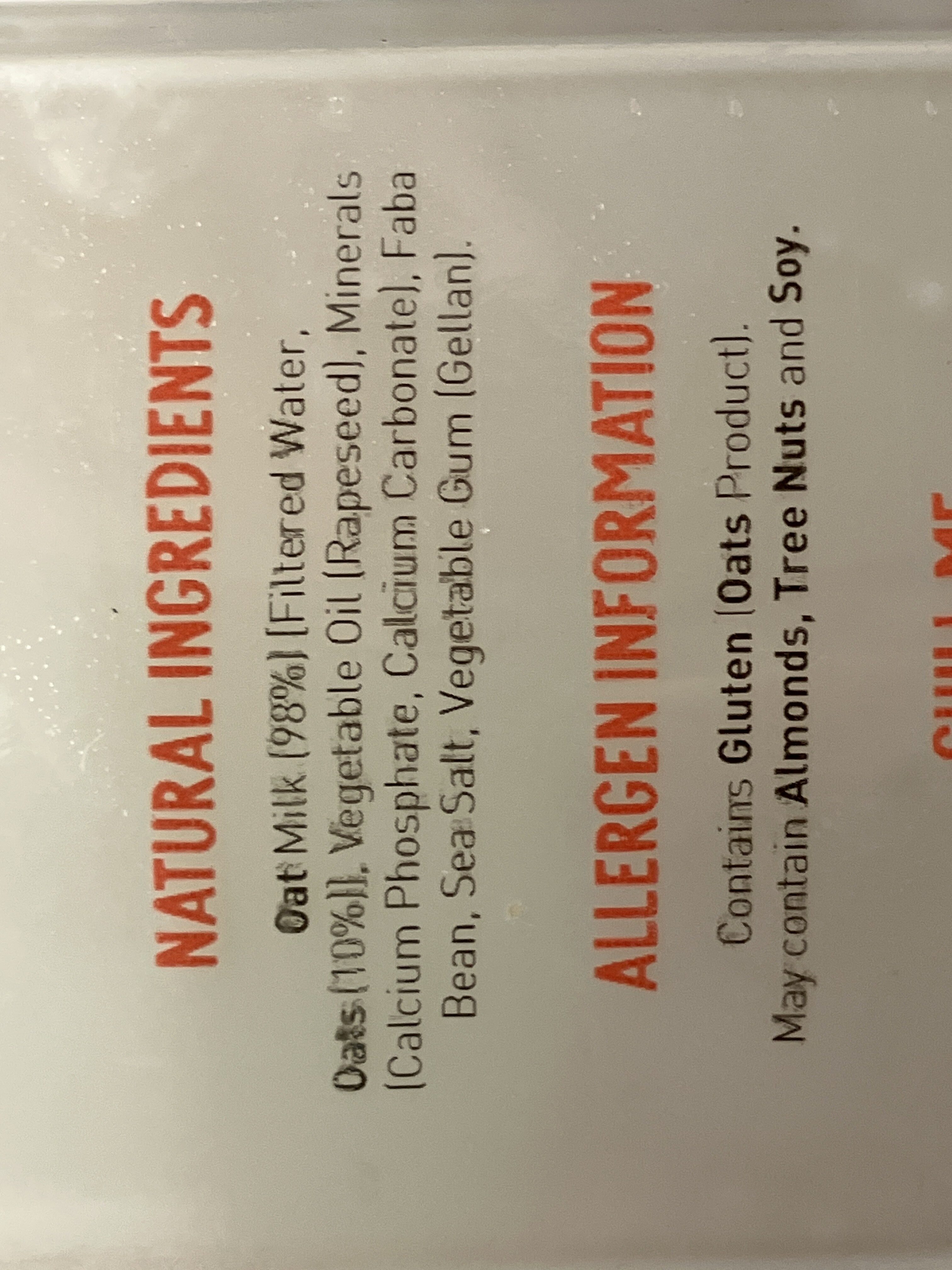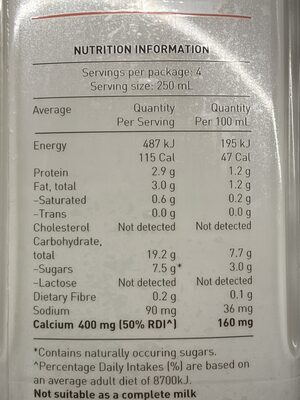Oat milk - Inside Out
This product page is not complete. You can help to complete it by editing it and adding more data from the photos we have, or by taking more photos using the app for Android or iPhone/iPad. Thank you!
×
Barcode: 9348470000481 (EAN / EAN-13)
Brands: Inside Out
Categories: Plant-based foods and beverages, Beverages, Dairies, Plant-based foods, Legumes and their products, Cereals and potatoes, Dairy substitutes, Legumes, Seeds, Cereals and their products, Legume seeds, Milk substitutes, Plant-based beverages, Milks, Plant-based milk alternatives, Cereal-based drinks, Soy beans, Oat-based drinks
Origin of ingredients: Australia
Stores: Woolworths, Coles
Countries where sold: Australia
Matching with your preferences
Environment
Carbon footprint
Packaging
Transportation
Report a problem
Data sources
Product added on by kiliweb
Last edit of product page on by rose789.
Product page also edited by archanox, foodvisor, yuka.sY2b0xO6T85zoF3NwEKvlhAfS-HvuBXtN0DguEa1yumAIaLkR_Fbuo_KF6s, yuka.sY2b0xO6T85zoF3NwEKvlkMfTcjS-QL_NhblqGyu68isDb7FPo5ws4_bD6s.










